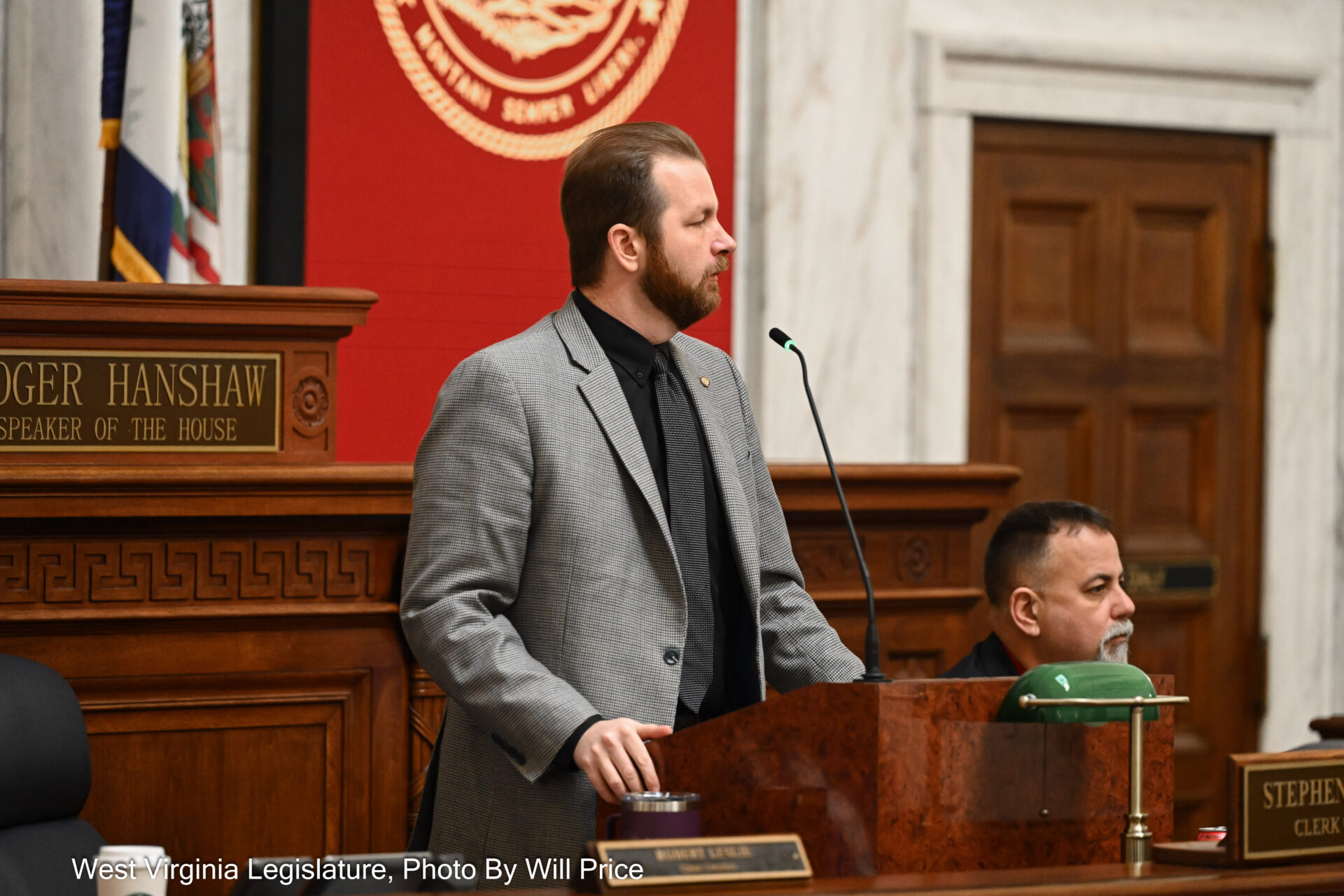Leaders with the Alzheimer’s Association West Virginia Chapter have said more than half of the 40,000 West Virginians with Alzheimer’s disease or dementia will wander off at some point.
House Bill 4190 would create a Purple Alert system for missing cognitively impaired persons. The alert uses video image recording devices to search for the person missing and provides for notice and broadcasting of a Purple Alert.
Bill sponsor Del. Daniel Linville, R-Cabell, said the Purple Alert is different from a Silver Alert that’s focused on missing seniors.
“There was a big gap beneath the age of being seniors who find themselves with cognitive impairment and ultimately end up missing, and their families are searching for them,” Linville said.
Linville said implementation of the Purple Alert will simply follow the Amber and Silver Alert templates. He said this is a bipartisan bill that simply ran out of time in the last regular legislative session.
“This bill actually passed the House 91-0 and there was unanimous support last year,” Linville said. “It also passed the Senate. We anticipate that this will be a very easy bill to pass and we look forward to seeing the governor be able to sign it.”
Establishing a Purple Alert comes on the heels of Senate Bill 570 passed last year. It requires all new law enforcement and correction officers to undergo specialized training in how to identify and communicate with those living with dementia and Alzheimer’s disease.
